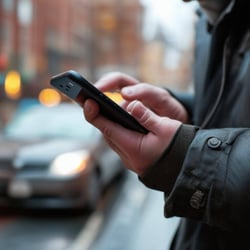Fight Fraud
Don't give out OTPs. Don't share your digital banking login info. End of story.

You are the best defense against fraud
If you get scammed out of your life savings, will you get your money back? In many cases, the answer is no. So don't let it happen in the first place. Stay informed. Know what fraud looks like. And fight it when it comes your way.
Memorize these red flags
If someone who says they work for us, or any financial institution, calls you out of the blue and does any of these things… it’s a scam. Just. Hang. Up.
- They ask you to verify a One-Time-Passcode they sent you
- They ask for your login information
- They ask for your PIN number
- They say they need to verify your account to assist you
- They discourage you from hanging up
- They say it’s an emergency or present an urgent situation
- They want immediate payment
- They want payment via gift card
Stay InfORmed about common scams












